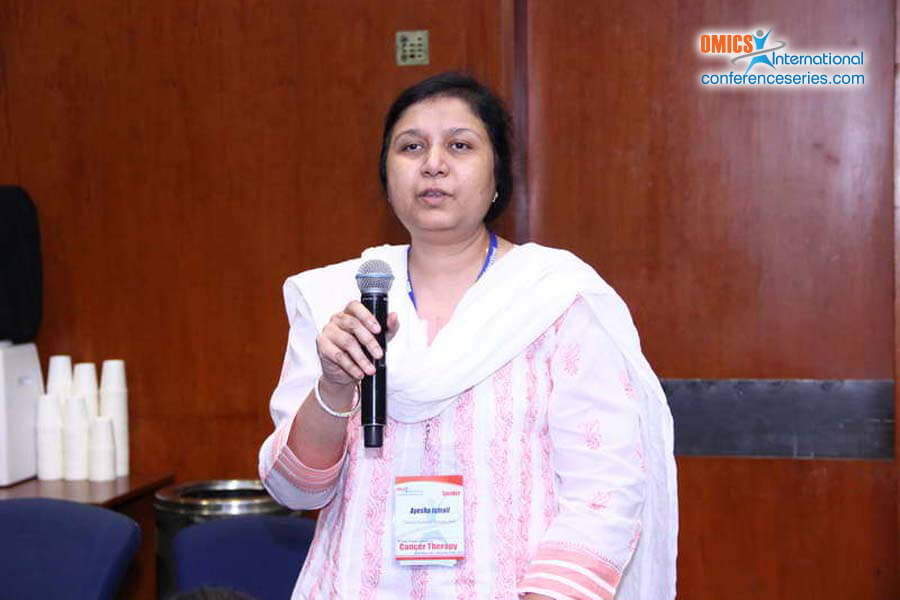
Ayesha Ismail
National Institute of Nutrition, India
Title: Murraya koenigii leaves: a potent anti-cancer agent against breast cancer
Biography
Biography: Ayesha Ismail
Abstract
Breast cancer is the leading cause for death among women worldwide. Cancer cells are known to possess high proteasome activity which is essential for their growth and survival. Inhibition of the proteolytic activity of the 26S proteasome leads to apoptosis and targeting the proteasome is thought to be an attractive approach for anticancer therapy. Murraya koenigii is a medicinally important herb of Asian origin and a rich source of bioactive compounds such as flavonoids and alkaloids. The objective of this study was to investigate the inhibition of cancer cell growth and proteasome activity by M. koenigii leaf extract (MLE) using both in vitro and in vivo models. Cell culture studies using two human breast cancer cell lines revealed that the MLE could inhibit the activity of the 26S proteasome and led to cell death/apoptosis. Interestingly, MLE had minimal effect on the proteasomal activity in a normal cell line. Further, in vivo studies were carried out and xenografts were implanted in nude mice using the MDA-MB-231 human breast cancer cell line. Tumor bearing mice were administered either vehicle or two different doses of MLE. Proteasomal and caspase-3 activities were determined by using specific fluorogenic substrates. Treatment with MLE led to significant reduction in tumor growth. There was a dose-dependent decrease in proteasomal enzyme activities (Ch-L & T-L). Increased caspase-3 activity in the treated tumors compared to untreated tumors indicated enhanced apoptosis. Increased expression of the cell cycle inhibitors (p21 & p27) with MLE suggested growth arrest which was reflected in the reduced tumor size. Decreased expression of both angiogenic and anti-apoptotic gene markers indicates inhibition of angiogenesis and promotion of apoptosis in the MLE treated tumors. In conclusion, the results indicate M. koenigii leaves as a potential anti-cancer agent and highlight its benefit in breast cancer prevention and treatment.


